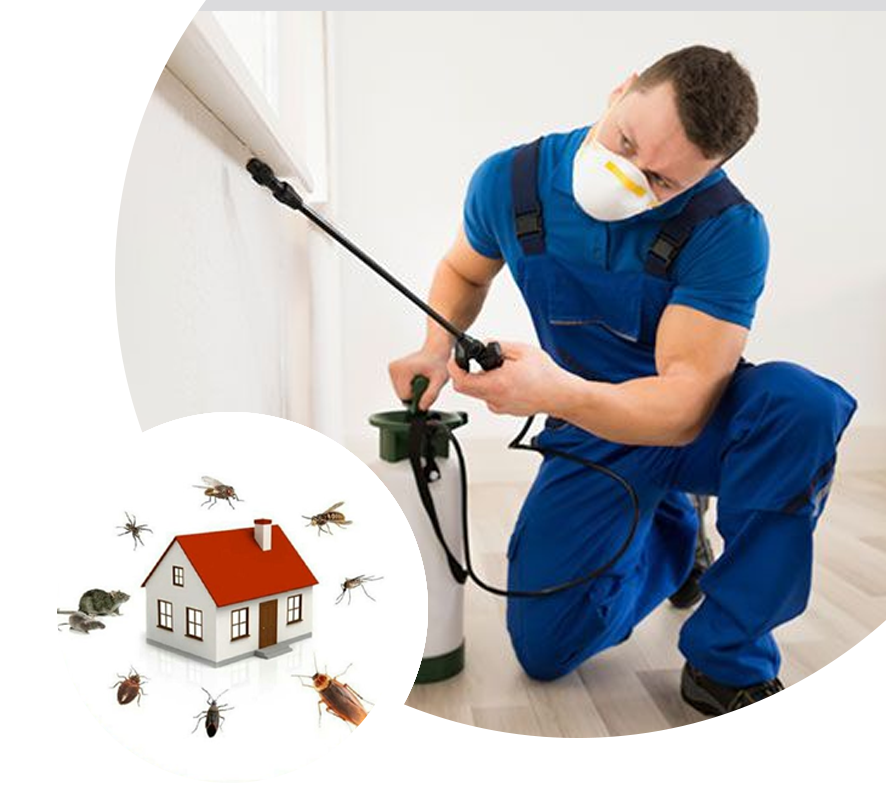Comprehensive Pest Control Services: Keep Your Residential Property Pest-Free!
Comprehensive Pest Control Services: Keep Your Residential Property Pest-Free!
Blog Article
Specialist Pest Control Techniques for Long-Term Results
Expert bug control strategies envelop a detailed technique that begins with a detailed inspection and analysis, adhered to by precise parasite recognition to comprehend their habits patterns. The implementation of Integrated Insect Administration (IPM) concepts, coupled with eco-conscious treatments, forms the foundation of lasting pest eradication.
Inspection and Assessment
Upon entering a home for pest control solutions, the initial action is a comprehensive inspection and analysis to identify the level of the invasion and identify one of the most efficient therapy plan. Expert pest control specialists are trained to meticulously examine the facilities, seeking indications of bug activity such as droppings, munch marks, nests, or any kind of architectural damages. They will certainly likewise assess the problems that may be drawing in bugs, such as food resources, water leaks, or access points.

Pest Identification and Behavior

Moreover, recognizing the behavior of the identified parasite is key to carrying out reliable control procedures. Knowing where insects nest, what they feed on, and their task patterns can aid pest control experts devise strategies to eliminate them efficiently. Some bugs might be nocturnal, while others are extra energetic throughout the day. This knowledge permits the application of treatments at optimum times for maximum performance.
Integrated Parasite Management (IPM)
Integrated Bug Monitoring (IPM) strategies integrate numerous techniques to manage and stop parasite problems in a lasting and eco friendly way. bed bug treatment. By integrating approaches such as biological control, pest control habitat adjustment, alteration of social methods, and the usage of resistant varieties, IPM intends to decrease the usage of chemical pesticides
Among the essential principles of IPM is the emphasis on prevention. This positive technique entails tracking insect populations consistently to detect any possible concerns before they escalate. By identifying pest problems early, pest control procedures can be implemented promptly and effectively.
Additionally, IPM advertises making use of non-toxic bug control methods whenever possible. This can consist of using natural killers of the bugs, presenting advantageous insects, or using scents to interfere with mating patterns. By lowering dependence on chemical pesticides, IPM not just safeguards the setting but additionally helps maintain a balance in the ecosystem.
Environmentally-Friendly Therapies
Executing eco-conscious methods in bug control treatments can effectively attend to problems while focusing on ecological sustainability. Environmentally-friendly treatments focus on decreasing the effect of parasite control techniques on communities, non-target microorganisms, and human health. These techniques usually entail making use of all-natural predators, such as ladybugs or nematodes, to manage pest populations, lowering the requirement for chemical interventions. Furthermore, methods like environment control, such as readjusting wetness degrees or getting rid of food resources, can help prevent bugs without using hazardous materials.
An additional key element of environmentally-friendly treatments is making use of organic and naturally degradable products that damage down swiftly without leaving harmful deposits in the atmosphere. Botanical insecticides originated from plants like chrysanthemums or neem use efficient parasite control while positioning very little danger to non-target types. Using methods like heat treatments or pheromone traps can target details bugs with precision, lowering the overall ecological influence of parasite control techniques.
Recurring Surveillance and Upkeep
Continuous security and maintenance are essential elements of effective insect control management. Ongoing surveillance plays a vital function in ensuring that insect infestations are detected early and taken care of promptly. Routine evaluations by skilled professionals are needed to identify any type of indications of bug task, analyze the performance of previous therapies, and make changes to the bug control strategy as needed. By keeping track of parasite populations gradually, bug control specialists can track fads, prepare for prospective concerns, and carry out preventative steps to decrease the risk of future infestations.
Along with tracking, maintenance techniques are crucial for long-term pest control success. This includes applying proper hygiene steps to eliminate possible food and water resources for bugs, securing off entrance indicate stop insects from going into the facilities, and addressing any type of architectural concerns that might facilitate pest problems (bed bug treatment). By integrating ongoing surveillance and maintenance into an integrated insect monitoring method, organizations can make sure a pest-free setting and safeguard their home against expensive damage and health and wellness risks
Conclusion
To conclude, making use of expert insect control strategies such as detailed assessment and assessment, precise parasite recognition and understanding of their habits, integrated bug administration strategies, environmentally-friendly treatments, and recurring surveillance and maintenance are necessary for achieving long-lasting outcomes in pest control. By executing these methods, people can successfully handle parasite invasions and keep a pest-free setting in a sustainable way.
Report this page